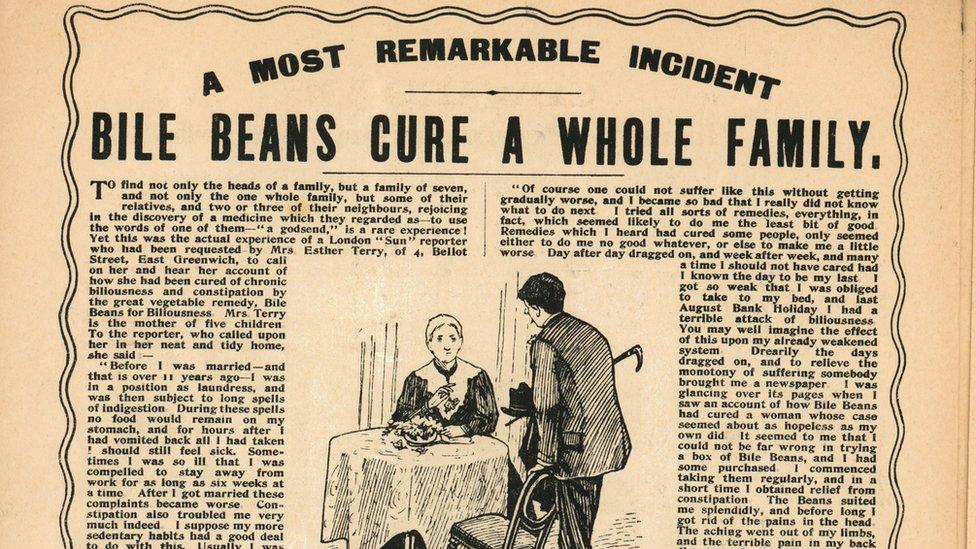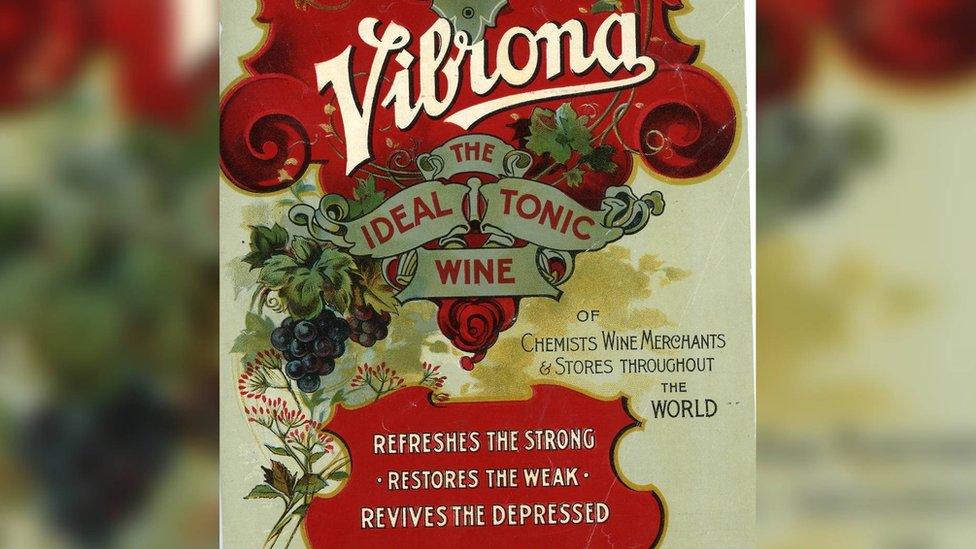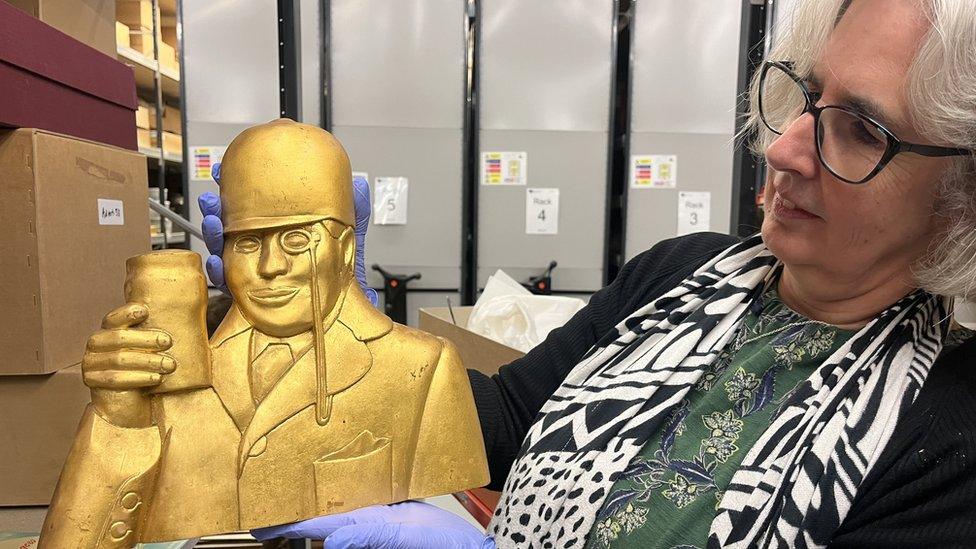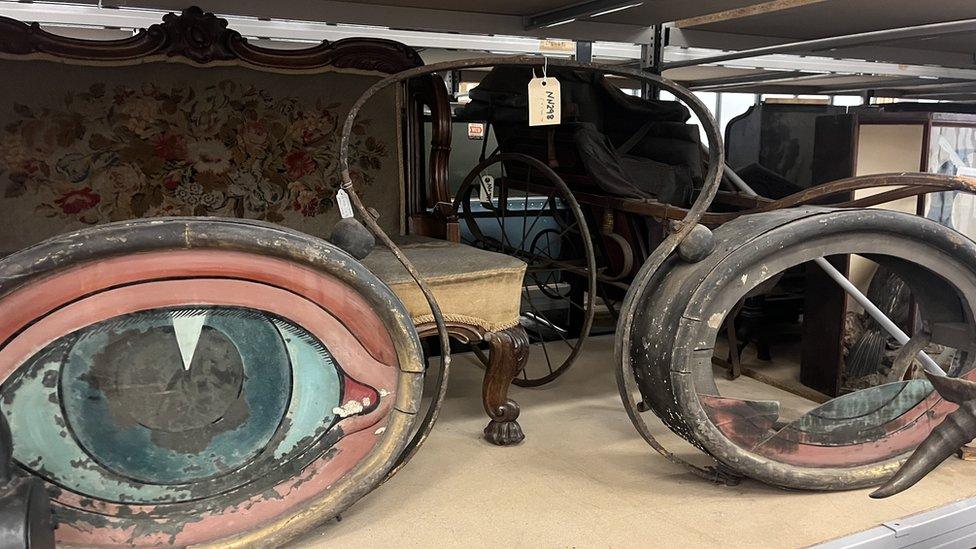Outlandish sales claims focus of new Leeds exhibition
- Published

Newspaper promotions for Bile Beans usually took the form of testimonials proclaiming life changing cures
Traditionally Boxing Day sees the beginning of sales often with unforgettable ads to tempt festive shoppers. While strict rules have prevented sellers from bending the truth, suspect sales tactics used in the past come under the spotlight in a new exhibition.
The display features the outlandish claims of Leeds-based company C.E Fulford, which in the early 1900s started supplying the popular and widely promoted medicine Bile Beans.
Its promise was life-changing: "There is no other known remedy so potent for the various aliments common to humanity."
The beans which acted as a laxative, purportedly owed their amazing curative properties to a mysterious secret ingredient discovered by a fictional explorer in the heart of Australia.
Among its claims, the beans could rid women of "unsightly pimples and face sores" which could make "otherwise perfect features wholly repulsive" as well as being a cure-all for headache, piles, liver and kidney problems and "all female ailments".

The tonic wine was marketed as being medicinal
Phenomenal sales were achieved through door-to-door leafleting, blanket advertising in the press, featuring emotive personal stories of miraculous, life-changing cures, presented as news items.
But in 1904, the miraculous medicinal properties of Bile Beans were found to be false, when the company was taken to court for fraud. The "secret ingredient" was in fact, nothing more than humble, locally grown rhubarb and liquorice.
Other brands exposed in the exhibition at the city's Abbey House Museum, include Vibrona Tonic Wine, made by Fletcher, Fletcher and Co. Ltd in around 1905.
Its promise was undoubtedly a lure for buyers - "Refreshes the strong, restores the weak, revives the depressed."
Marketed as medicinal, and available to buy at chemists rather than licensed premises, tonic wines were in fact extra strong alcoholic drinks, which resulted in many innocent buyers becoming unwittingly drunk.

Tetley's Brewery was founded in 1822 by Joshua Tetley in Hunslet
Kitty Ross, Leeds Museums and Galleries' curator of social history, said: "The tactics companies have used to try and persuade costumers to part with their money have varied dramatically over the years in line with consumer trends, economics and the way in which advertising itself has been regulated.
"Victorian and early 20th Century companies had a tendency to either wildly exaggerate or outright fabricate the health benefits of their products, often leading to quite outlandish claims which did not stand up to scrutiny."

The giant glasses were synonymous with Dysons jewellers which was founded in Leeds in 1865
Also part of the display will be a selection of vintage signs which once adorned the streets of Leeds.
These include a giant pair of spectacles once hung outside the famous Dysons jewellers, founded on The Calls in 1845. The huge glasses were rescued from a skip when the shop was renovated.
Other signs include an eye-catching golden Tetley's brewery sign and a huge wooden arm and hammer which once advertised a Victorian gold beater's shop in Leeds.
The exhibition opens at Abbey House Museum on 20 January.

Follow BBC Yorkshire on Facebook, external, X (formerly Twitter), external and Instagram, external. Send your story ideas to yorkslincs.news@bbc.co.uk, external.